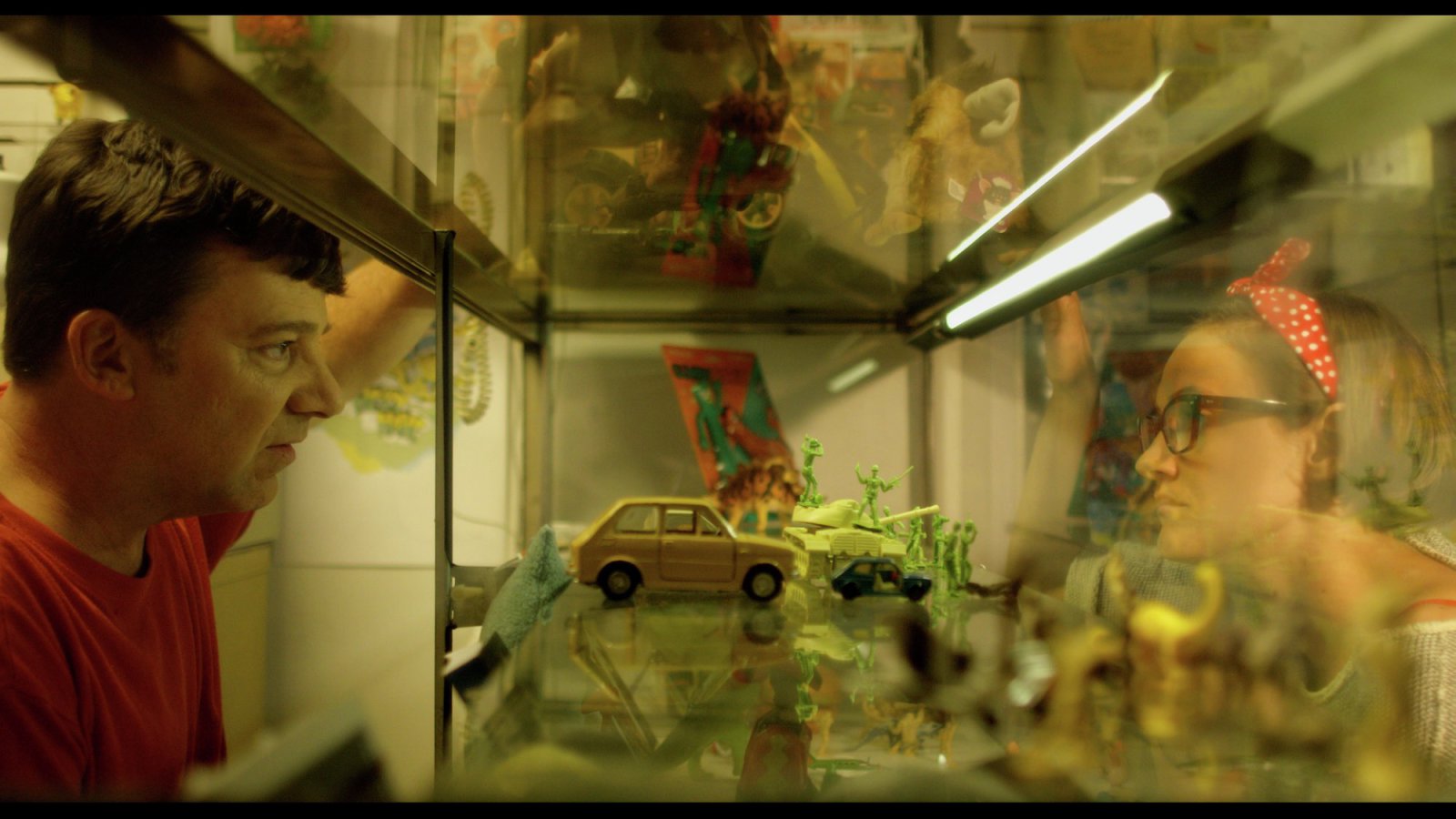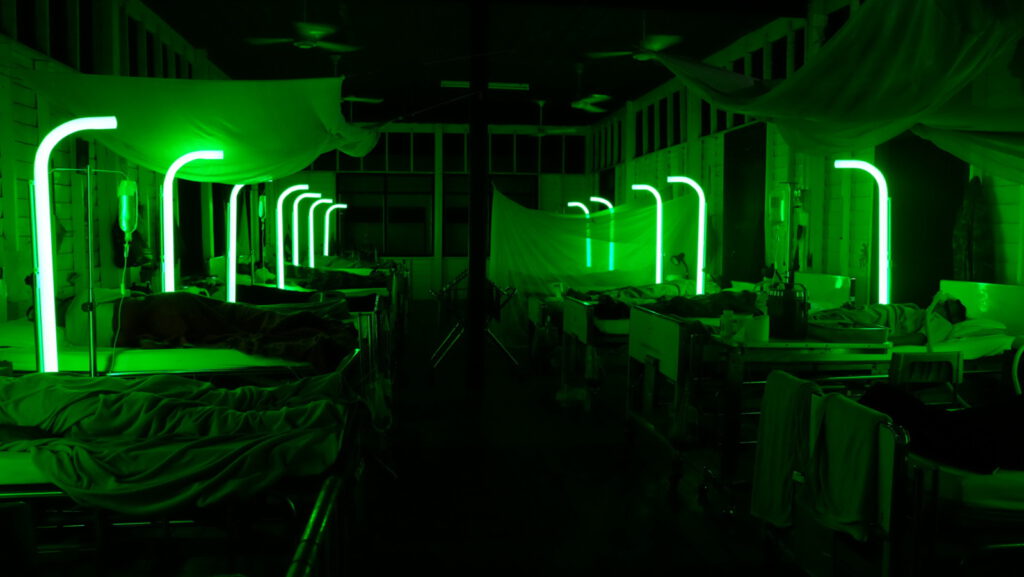Again, we’re back with a dispatch of films that have almost
nothing in common other than the fact that they played at the Toronto
International Film Festival, celebrating its 40th anniversary this
year. Much has been made, appropriately so, of how inclusive and diverse this fest
can be. And it’s not just lip service or tokenism; it has always been a
festival that felt like it has opened its arms to films and filmmakers from around
the world. And so while these three have literally nothing in common
thematically or tonally, that’s why one of the reasons I enjoy lumping them
together. They embody the scope of one of the most diverse fests in the world.
As he so often has, the great Thai filmmaker Apichatpong
Weerasethakul (“Uncle Boonmee Who Can Recall His Past Lives”), who is included
in the Masters program here at TIFF, finds ways to craft mesmerizing filmmaking
without being precious or overly calculated in the way he does so. His best
work often feels like a dream captured on film. And his best work often
captures a worldview in which this plane of existence and another one don’t
just exists side by side, but are constantly sharing the same space. Such is
true of “Cemetery of Splendour,” a
film that I think is minor when compared to some of its creator’s best works,
but resonates deeply as a movie made by someone with total command of his form.
“Cemetery” takes place in the northeast region of Isan, at a
hospital for wounded soldiers who do little more than sleep. They sometimes
wake up for brief periods of time, but crash back to the land of dreams. A
local woman named Jen (Jenjire Pongpas Widner) spends her days with these men,
talking to them, cleaning them and trying to figure out what’s wrong. She
becomes attached to one of them, a kind man named Itt (Banlop Lomnoi), who occasionally
awakens and has conversations with Jen. She also meets a woman named Keng
(Jarinpattra Rueangram), who claims to be a medium who can see the visions of
the men while they lie comatose. Keng, Itt and Jen form a unique trio—all operating
on some level between the past and present. “Cemetery” sometimes feels less
purposeful than his other work, but there’s a sequence in the final act in
which Jen and Keng walk through a woods in which the medium can still see the
palace that stood there centuries ago that makes the whole venture worthwhile.
There were times when “Cemetery” lost me, but it definitely got me back by the
end.

“The Ones Below”
never had me other than to make me angry at another thriller that uses
motherhood and pregnancy as tools in a cheap thriller. David Farr’s film in the
City to City London program is one of those movies that strives for Polanski in
its detailing of a suburban nightmare, but is ultimately hollow. This British
playwright turned filmmaker doesn’t care about these characters or their
plight. They are merely tools for a movie built on vile twists and unbelievable
behavior. Polanski worked from deep human emotion and relatable paranoia. For
some reason, when filmmakers try to re-create that but mistake the style of the
auteur without finding any of the substance, I respond with extreme dislike.
This movie just doesn’t work.
Kate (Clemence Poesy) and Justin (Stephen Campbell Moore) are living in a gorgeous London suburb in a duplex with an apartment below theirs.
Jon (David Morrissey) and Teresa (Laura Birn) are the new neighbors who act a
little unpredictably. After a few bizarre encounters, things seem to settle in
with the two couples. It helps that Teresa and Kate are both pregnant. The
upstairs couple hosts a dinner for the ones below, and tragedy strikes. Of
course, there’s no movie otherwise. “The Ones Below” is a film in which longing
to be a mother, or nerves about whether or not one wants to have a child, aren’t
thematically examined as much as employed as plot devices. You know, mothers be
crazy.

Much more intriguing, although still somewhat forgettable,
is A.D. Calvo’s “The Missing Girl,”
playing in the Vanguard program at this year’s TIFF. Anchored by strong
performances by Robert Longstreet and Alexia Rasmussen (so great in “Proxy,”
which also played in Vanguard), “The Missing Girl” echoes “Ghost World” in the
way it feels like a solid, character-driven graphic novel on film. It’s
awkwardly stylized (sometimes too much), but the leads are always engaging, and
the plot is unique and entertaining. What starts as a story about an average
dude being reminded of his past verges into mystery without losing its sense of
character. And it becomes thematically dense in that Calvo’s film is about men
and their possessions—whether they be comic books, cars, or women.
Mort is a decent guy. He owns a comic book store that’s
named after him, and doesn’t seem to have many customers. He hires a new girl,
and the two spend time conversing. Mort goes home to a recording of his own
voice giving him support every night: “You
are a worthy guy. Do things that make you happy. Don’t hurt others. Help them
if you can. But take care of yourself first. And call mom every now and then.”
Mort notices that his new employee Ellen looks strikingly
like a girl he knew in high school who went missing. And then Ellen disappears
herself. Is it Mort’s old high school acquaintance responsible for both
disappearances? Mort dives deep into the investigation, but realizes that
people aren’t as predictable as we think they are. And neither is this movie.
Don’t judge a comic book by its cover.












